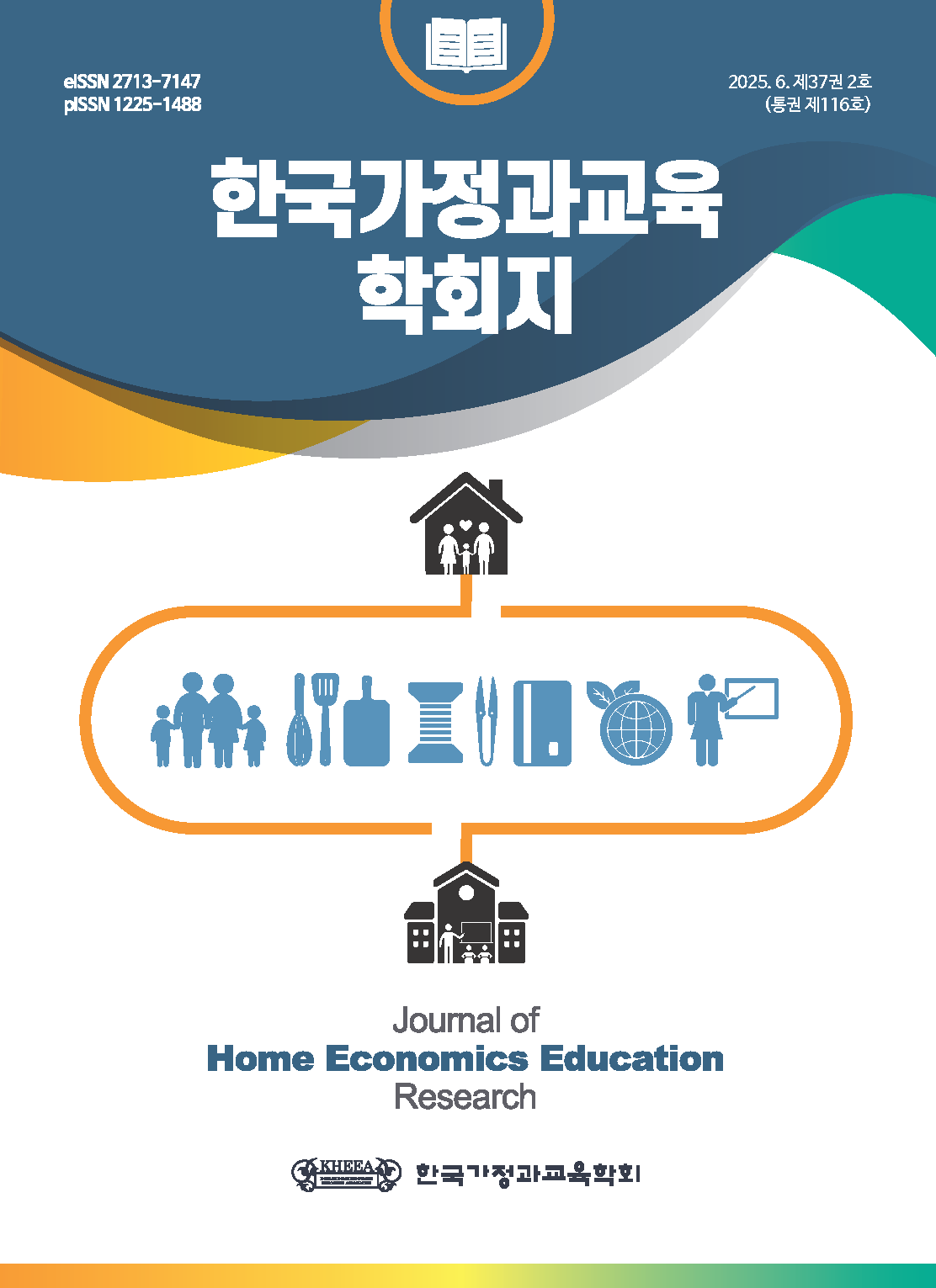국가수준 교육과정 변화에 따른 전통복식문화 교육내용의 구조적 변화: 제3차부터 제7차 개정 교육과정을 중심으로
Structural Changes in Traditional Dress Culture Education Content in Response to National Curriculum Revisions: Focused on the 3rd to 7th Curriculum Reforms in Korea
- 한국가정과교육학회
- 한국가정과교육학회지
- 제37권 제2호
-
2025.0699 - 111 (13 pages)
-
DOI : 10.19031/jkheea.2025.6.37.2.99
- 27

본 연구는 제3차부터 제7차에 이르는 국가수준 교육과정 개정 과정에서 중등 가정과 교과서 내 전통복식문화 교육내용이 어떻게 구성되고 변화해 왔는지를 분석하였다. 이를 위해 각 시기의 교과서에서 의생활 영역의 단원 구성 방식, 지면 비중, 전통복식 관련 세부 항목의 포함 여부를 중심으로 구조적⋅내용적 분석을 수행하였다. 분석 결과, 전통복식문화 교육은 제3차 및 제4차 교육과정 시기에는 실습과 이론이 통합된 형태로 다층적인 구성이 이루어졌으나, 제5차 이후부터는 실천적 요소가 점차 축소되며 감상 중심의 간접적 교육내용으로 전환되었고, 제7차 교육과정 이후에는 교과서에서의 존재감 자체가 약화되는 경향을 보였다. 이러한 변화는 실기 중심의 생활기술 교육이 해석 중심의 문화 교육으로 전환되는 교육과정의 흐름과 관련이 있으며, 전통복식문화 교육의 지속 가능성과 문화적 감수성 함양을 위해 새로운 교육적 접근이 요구된다. 본 연구는 향후 교과서 개발과 수업 설계를 위한 기초자료를 제공하며, 전통문화 교육의 방향성을 재고하는 데 의의를 가진다.
This study examines the structural and content changes of traditional dress culture education as presented in middle and high school home economics textbooks across the 3rd to the 7th Korean national curriculum revisions. Despite the cultural significance of Hanbok, there has been limited research on how its educational representation has evolved in secondary school curricula. Focusing on the clothing life domain, the study analyzes how the representation and educational emphasis on Hanbok (traditional Korean dress) have evolved over time. Using a dual approach - structural analysis (unit composition and space ratio) and content analysis (knowledge, cultural, and practical elements) - the study reveals that traditional dress education has gradually transitioned from practice-oriented, standalone units to simplified, symbol-based descriptions within integrated units. Since the 7th curriculum, practical elements such as tailoring and etiquette have largely disappeared, and Hanbok-related content has been reduced to short illustrations or general cultural references. This trend reflects a sharp decline in experiential learning opportunities related to traditional dress, underscoring the need for a pedagogical shift toward more interpretive and culturally grounded instruction. This study offers foundational insights for future curriculum design, textbook development, and teacher education regarding cultural sustainability and identity education.
Ⅰ. 서론
Ⅱ. 선행연구 고찰
Ⅲ. 연구 방법
Ⅳ. 연구 결과
Ⅴ. 결론 및 논의
참고문헌
(0)
(0)